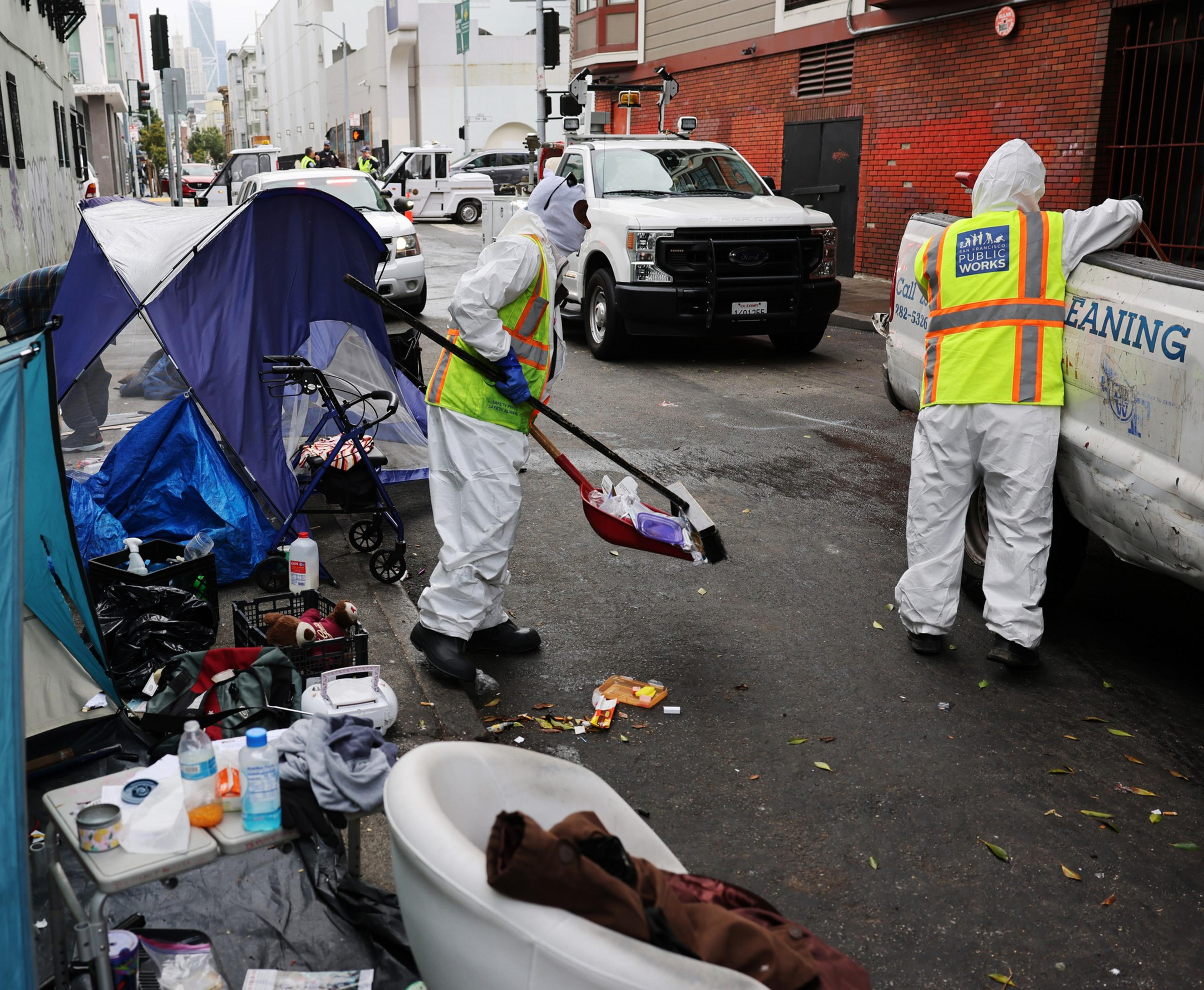Mayor London Breed said a “very aggressive” sweep of San Francisco homeless encampments will start in August, after a recent Supreme Court ruling cleared the path for widespread enforcement.
In June, the Supreme Court ruled that enforcing rules against homeless people for sleeping outside doesn’t violate the Eighth Amendment’s “cruel and unusual punishment” clause.
On Thursday, Breed celebrated the ruling and said the city plans to change its protocols and may begin issuing criminal penalties against homeless people.
“Thank goodness for the change in the Supreme Court decision,” Breed said at an election debate hosted by a local firefighter’s union. “Effective August, we are going to be very aggressive and assertive in moving encampments, which may even include criminal penalties.”
A spokesperson for the Mayor’s Office said a more comprehensive plan will be available in late July or early August.
“San Francisco is a city that prioritizes compassion and we will continue to lead with services but we cannot allow for people to refuse services and shelter when offered and available,” a statement from the Mayor’s Office said. “Our goal is to bring people indoors — camping or living on our streets isn’t safe for our community, residents and people in need of support.”
Advocates for homeless people have expressed outrage and disappointment over the Supreme Court ruling, arguing that sweeping encampments will only exacerbate homelessness.
The Coalition on Homelessness sued the city in 2022, alleging workers had destroyed the property of homeless people without providing them with alternate places to sleep.
U.S. Magistrate Judge Donna M. Ryu issued an injunction in December 2022 restricting the city’s ability to enforce anti-camping laws. However, after the Supreme Court’s decision, the court order barring anti-camping enforcement was overturned. The city is still prohibited from seizing and destroying people’s property during encampment sweeps.
Breed addressed the critics at Thursday’s debate, saying San Francisco is moving “from a compassionate city to a city of accountability.”
City attorney spokesperson Alex Barrett-Shorter said the partial lifting of the injunction will take effect sometime in the next few weeks, giving the city more flexibility to address encampments.
“It will help us address our most challenging encampments, where services are often refused and re-encampment is common,” Barrett-Shorter said in an emailed statement.
